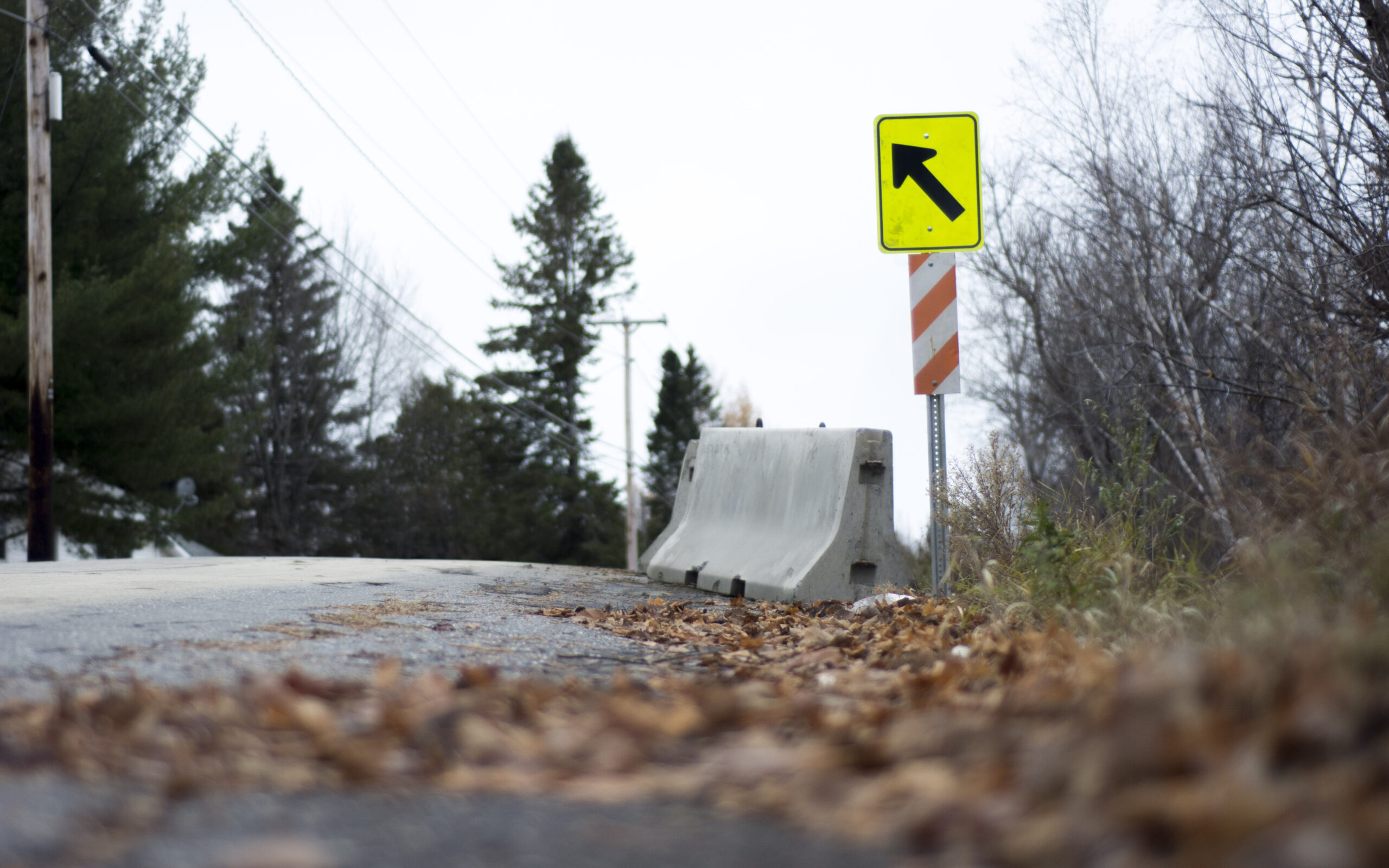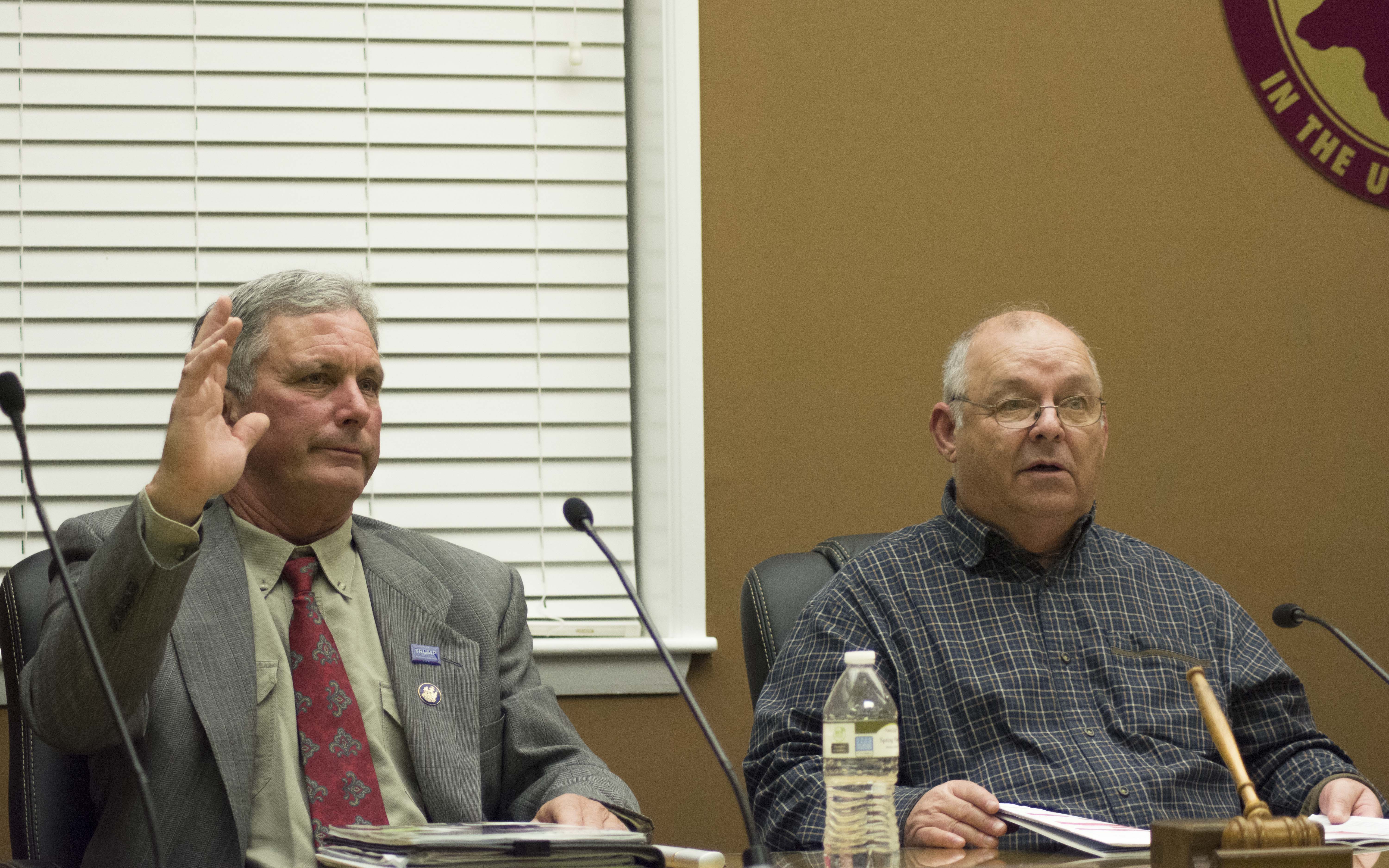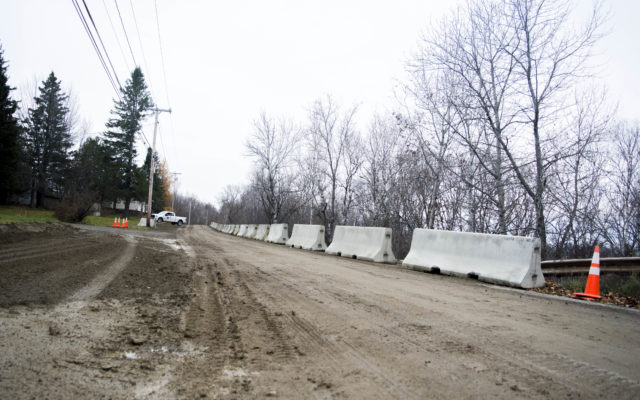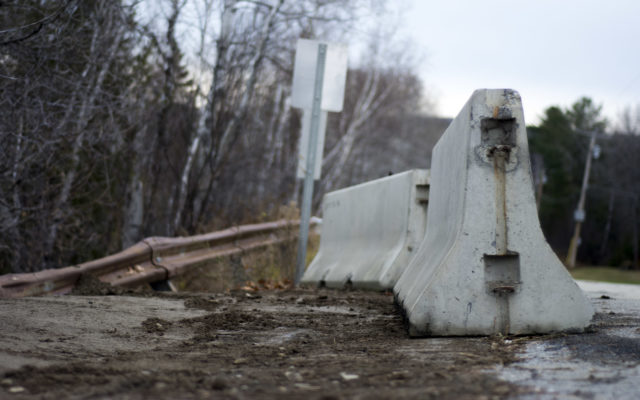
CARIBOU, Maine — Caribou city councilors briefly discussed the severely damaged River Road, which began to break apart due to soil saturation and runoff earlier this year, at the tail end of their public budget forum on Oct. 29, and agreed that a single lane should be open for travel as soon as possible.
On Monday, Nov. 5, City Manager Dennis Marker said the road has been reopened with the single-lane section posted with a 20 mile per hour speed limit. Barricades are in place along the western edge of the road to keep drivers off the sunken in areas that have been filled with dirt.
“We know it’s not a permanent fix,” said Marker, “but we hope it will alleviate concerns through the winter months.”
Caribou Police Chief Michael Gahagan said the one-lane section of the road will be “closely monitored throughout the winter.”
“Any movement will be assessed,” he said, “and the road will be closed if necessary.”
Councilor Mark Goughan raised the issue during the regular Council meeting on Oct. 29 stating that he “was really laid into by a few residents” because a temporary fix had not been implemented yet to the road that had been closed since April. He added that he was “right there at the head of the line to take the blame for it,” and asked if it would be possible to create a temporary, single-lane road out of the damaged quarter-mile section.

Caribou City Councilor Mark Goughan, left, and Mayor David Martin discuss creating a temporary opening in the damaged River Road so residents can travel more easily, during an Oct. 29 meeting. (Chris Bouchard)
Public Works Director Dave Ouellette said his department had received “some jersey barriers” that could be used to establish a single-lane road and that lawns of homes that have been purchased by the city have been excavated in an effort to make the road wider.
“It seems to be going slow,” Ouellette said, “but we didn’t anticipate a temporary opening until the ground was frozen.”
He then asked councilors that night if they would hypothetically want the road opened the next day as long as the jersey barriers were in place, or if it would be better to wait until the ground freezes. Mayor David Martin suggested that Ouellette take his oldest piece of heavy equipment and run it through the single lane area a couple of times to verify its stability.
“We did,” the public works director said. “We ran a loader, a backhoe, and dump truck over that section last week.”
The mayor asked if the city should consider posting weight limits, and Ouellette said this could be done any time, however, they are not able to stop “garbage trucks, fuel delivery trucks, or anything carrying perishable goods.” He said they could stop a harvester, for example, but not a farm truck carrying food.
Councilor Phil McDonough said he agreed with Ouellette in that the city should wait until the ground is frozen as “we might have some rain and if the road gets wet, there’s no guarantee that it will stay compacted.”
Ouellette reminded city officials of the potential liabilities associated with opening the road and Councilor Tim Guerrette suggested placing a sign indicating that drivers travel at their own risk.
The public works director said he wasn’t sure if that would cover the city in the event of an accident.
McDonough was wary of opening the road, and said he read an article about a community outside of Maine that was fined $3 million because a stop sign fell at an intersection, which led to an accident.
Goughan, however, said that “as one of seven” councilors, he would like to see Ouellette fill the sunken portion of the roadway before the ground freezes.
“Fill that baby in,” he said, “pack it as best as you can, put those barriers on the filled-in part, and open [the road] up as soon as you can.”
The councilor said area residents have a right to be upset and that, in his opinion, he and other councilors “should have been doing something in July.”
Martin asked Ouellette how much he estimated gravel to cost, and he said at $3 a yard and a need for about 500 yards, the city would spend about $1,500 not counting the cost of labor or equipment.
The mayor double-checked with Ouellette to make sure he did not experience any issues while driving heavy equipment over the damaged portion of the road.
“We were there last Friday,” said Ouellette, “and I can tell you that a 40,000 pound loader had its wheels right on the edge of that crack.”
The mayor said he agreed with Goughan that the city should try to fill the hole and open the road as soon as possible.
Theriault also agreed. McDonough said he was opposed, Councilors Hugh Kirkpatrick and Nicole Cote said they could go along with the plan, and Guerrette said he agreed with “whatever is safest” for the residents.
Martin said that any leery drivers could always wait until the road freezes before traveling through the one-lane section.
Police chief Gahagan also said he was comfortable with the plan, adding that he could post a lowered speed limit for that specific section of the road.
Ouellette said the public works department already has two signs indicating “one lane road ahead” that could be posted on either side of the section, and Theriault added that there is a section in one of the city-acquired driveways where a driver could pull over in the event of two vehicles driving toward one another.
Marker then told the councilors that at their direction, the city crews would proceed with the plan to open the road as soon as possible.
- Crews with the Caribou Public Works Department have filled in the sunken portion of the River Road and set up jersey barriers outside of the damaged portion, allowing for travel along a single lane for the first time since April. (Chris Bouchard)
- Crews with the Caribou Public Works Department have filled in the sunken portion of the River Road and set up jersey barriers outside of the damaged portion, allowing for travel along a single lane for the first time since April. (Chris Bouchard)









